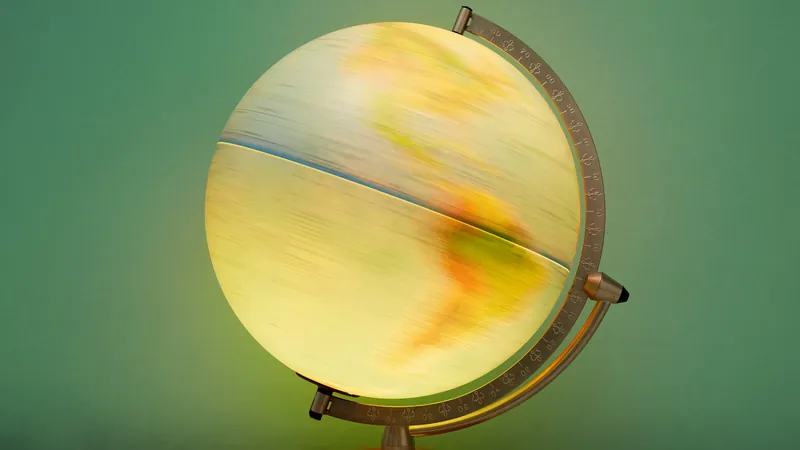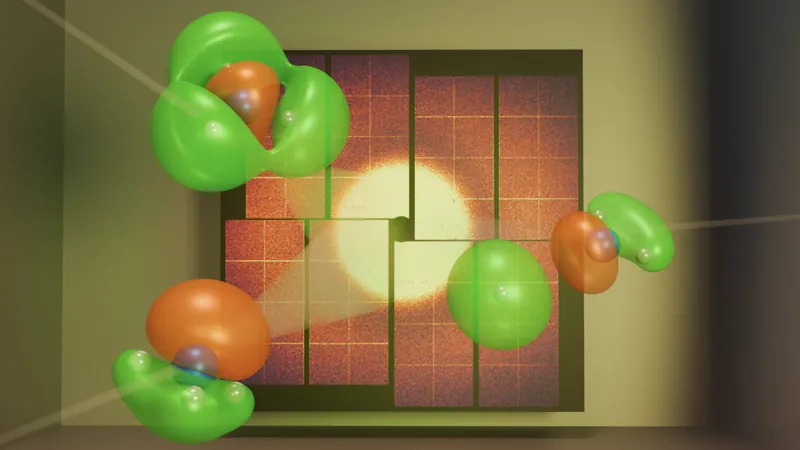
Earth on a Whirl: A Surprising Twist Makes Today One of the Shortest Days Ever!
2025-08-05
Author: Ling
Hold onto your hats! It seems Earth is spinning faster than we thought, as today's solar day on August 5, 2025, breaks records by being slightly shorter than the usual 24 hours.
Clocking in at just 1.25 milliseconds short of 86,400 seconds, it might seem imperceptible, but this peculiar phenomenon is raising eyebrows across the scientific community. Why is our planet speeding up after decades of slowing down?
Understanding the Day: Solar vs. Sidereal
To grasp this mystery, we need to differentiate between a solar day—the one we follow—versus a sidereal day. A sidereal day, which measures a full rotation relative to distant stars, is 23 hours, 56 minutes, and 4.1 seconds. This is why stars rise slightly earlier each night. In contrast, a solar day is the 24-hour period based solely on our sun's position.
Earth's recent shorter days are the talk of the town, with three specific dates this year predicted to defy the 24-hour rule: July 9, July 22, and today, August 5. Interestingly, the record for the shortest day was set on July 5, 2024, at 1.66 milliseconds under the 24-hour mark.
The Moon's Mysterious Influence
Officially, Earth's solar day has been lengthening since record-keeping began in 1973, largely due to the Moon's gravitational pull. As it orbits, the Moon generates friction, gradually causing its path to expand while transferring Earth's rotational energy—thus slowing our rotation.
However, on the days identified this year, the Moon's unique position relative to Earth's equator plays a critical role. Changes in the Moon's declination influence tidal forces that can subtly speed up Earth's rotation.
Unveiling the Increasing Rotation Speed
While short-term fluctuations can be traced back to the Moon, scientists are grappling with the reasons behind Earth's overall acceleration. One theory suggests that global warming may contribute to this newfound speed. However, it's more likely that the rotation of Earth’s liquid core is slowing down, allowing the crust and mantle to spin faster.
You may not feel the effects of today's brief day, but keep an eye on the future! If this trend continues, we might witness something unprecedented—a negative leap second could be added to our clocks by 2029!
As Earth's pace quickens, one thing is for certain: time itself is putting on a show, and we're all part of this fascinating spectacle!



 Brasil (PT)
Brasil (PT)
 Canada (EN)
Canada (EN)
 Chile (ES)
Chile (ES)
 Česko (CS)
Česko (CS)
 대한민국 (KO)
대한민국 (KO)
 España (ES)
España (ES)
 France (FR)
France (FR)
 Hong Kong (EN)
Hong Kong (EN)
 Italia (IT)
Italia (IT)
 日本 (JA)
日本 (JA)
 Magyarország (HU)
Magyarország (HU)
 Norge (NO)
Norge (NO)
 Polska (PL)
Polska (PL)
 Schweiz (DE)
Schweiz (DE)
 Singapore (EN)
Singapore (EN)
 Sverige (SV)
Sverige (SV)
 Suomi (FI)
Suomi (FI)
 Türkiye (TR)
Türkiye (TR)
 الإمارات العربية المتحدة (AR)
الإمارات العربية المتحدة (AR)